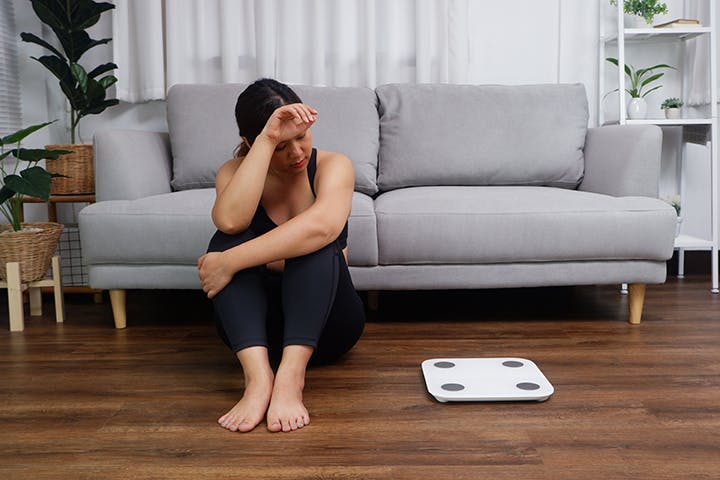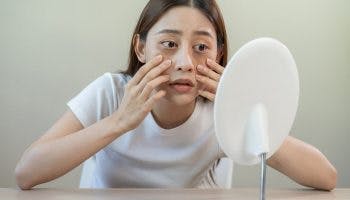How to Treat People with Eating Disorders
Published | 5 min read
Eating disorders are complex and damaging to the body. Taking steps to treat them can improve your quality of life.

Eating disorders are very complex. They also involve physically and mentally damaging relationships with food, exercise and body image. The risk factors for each person with an eating disorder are different. Though, you are likely to develop the problem if you have low self-esteem, face social pressure to be thin, or experience abuse, bullying or trauma.
Traditional Chinese Medicine (TCM) believes that eating disorders stem from conditions that aggravate emotional and mental disharmony. These include anger, depression, frustration and resentment towards one’s body. All these are the consequence of Liver Qi (vital energy) Stagnation. Conversely, anxiety, fear and excessive thinking are the cause of Qi Stagnation.
Let’s discover the various types of eating disorders and ways to treat them effectively.

Three Common Types of Eating Disorders
TCM generally categorises eating disorders into three types – selective eating, partial or total abstinence from food, and binging impulsively without control. Selective eating, specifically, is defined as eating certain foods that you perceive to be “healthy” and rejecting other food varieties.
Anorexia nervosa
People with anorexia nervosa obsess about weight loss. Hence, they will deny themselves food to the point of self-starvation. They will use binge eating and behaviours or exercises that induce purging to burn calories. People who fear being fat may remove whole food categories from their diet.
As a result, the disorder will give rise to emotional problems like irritability, social withdrawal, a lack of mood or emotion, or the inability to understand the gravity of a situation. It can also make you become extremely very thin. Your body will also force itself to conserve energy, causing insomnia, constipation, dehydration, abdominal pain, an irregular heartbeat, or low blood pressure.
Bulimia nervosa
Not having control is a common fear of people with bulimia nervosa. Usually, binge eating large amounts of food in a short time will set off the emotion. The person will then try to eliminate the extra calories by forcing vomit, misusing laxatives, and exercising excessively.
People with bulimia nervosa surprisingly have a healthy weight or are slightly overweight. However, they will be prone to negative physical and mental health implications. Psychologically, their perception of an ideal physique will damage your self-esteem and make you feel guilty for eating.
Binge eating and excessive purging will damage the digestive system and decrease the body’s electrolytes. A loss of electrolytes can dehydrate one’s body and increase the risk of cardiac arrhythmias, heart failure, or even death. Acid reflux is also common.
Pica
This eating disorder involves ingesting items that are not considered to be food. It can last over a month or more, and will offer zero nutritional value. A few of the substances that are typically ingested are cloth, hair, soap, paint chips and talcum powder.
Malnutrition, pregnancy and iron-deficiency anaemia are the most common causes of pica.
It can also occur in people who are diagnosed with schizophrenia, autism spectrum disorder (ASD) or an intellectual disability.

Steps You Can Take to Do Away with Eating Disorders
A multi-discipline approach is suitable for the treatment of eating disorders. Recommendations by a clinical physician usually depend on the type of disorder you’re facing.
TCM treatment, meanwhile, will centre on the movement of qi throughout the entire body. It also prioritises the nourishment and support of all organs by inducing a smooth blood flow.
Undergo behavioural therapy for eating disorders
Several treatment modalities can aid recovery from eating disorders. Cognitive Behavioural Therapy (CBT) focuses on understanding the underlying causes of a person’s irrational emotions and thought patterns. The key concept of this approach is based on the belief that thoughts and feelings are directly related to behaviour.
Dialectical Behaviour Therapy (DBT) simultaneously helps you accept that you have a problem and encourages you to make a change. It focuses on learning new skills in four key areas – mindfulness, distress tolerance, emotional regulation and interpersonal effectiveness.
Mindfulness promotes better decision-making by relying on your rationale and emotions. Distress tolerance is useful for coping with crises through distraction and self-soothing. Emotional regulation allows you to tune in to your feelings, while interpersonal effectiveness teaches you to be more assertive and how to ask for help.
Use prescription medications
Many who live with an eating disorder may experience psychological comorbidities like anxiety or depression. There are no medications available for treating an eating disorder directly, but antidepressants and anti-anxiety drugs can help by addressing these underlying issues.
Consume herbal ingredients or formulations
Conjunctive use of acupuncture and herbal medications can support the treatment of eating disorders. “These modalities can help move Liver qi and resolve stagnation in the body, restore harmony in the liver and digestive system, and strengthen the spleen and stomach after long-term Liver Qi Stagnation”, explains Eu Yan Sang physician Vong U Chan.
You can use liquorice (Gan Cao, 甘草), polygonati rhizome (Huang Jing, 黄精), Four Gentlemen decoction (Si Jun Zi decoction, 四君子汤) and Shen Ling Bai Zhu powder (参苓白术散) to tonify the spleen, and nourish blood and qi.
Ophiogon (Mai Men Dong,
Identifying the root cause of eating disorders is necessary for improving food consumption. Use this guide to help you overcome a particular condition. If you wish to use herbal formulations or ingredients, do speak to a clinical physician and TCM practitioner beforehand. This will enable you to develop a targeted approach that’s safe and avoids potential contraindications.
References
- Eating Disorder Hope. What is an Eating Disorder: Types, Symptoms, Risks, and Causes. [Accessed 21 January 2022]
- BC Children’s Hospital. What is an eating disorder? [Accessed 21 January 2022]
- National Alliance on Mental Illness. Eating Disorders. [Accessed 21 January 2022]
- NATIONAL EATING DISORDERS ASSOCIATION. PICA. [Accessed 21 January 2022]
- Center for Discovery. DBT vs. CBT. [Accessed 21 January 2022]
Share this article on






